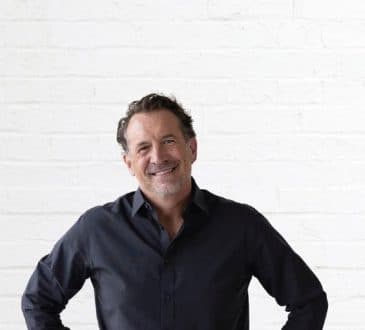Learning Digital Age Soft-Skills: A Behavioral Approach

Over the next decade several advancing and converging technologies are going to completely transform how we live and how we work and in large part, determine who will work. Technology will automate tens of millions of jobs in the United States, including professional jobs. Humans will need to excel at doing the tasks that technology won’t be able to do well:
Thinking differently than the technology: Creative, imaginative, and innovative thinking; higher-order critical thinking including making decisions in environments with lots of uncertainty and little data; exploring the unknown experimentally; and making moral judgments.
Emotionally connecting and relating with other human beings in positive ways: Ultimately, our defining uniqueness as human beings will be our emotional abilities to connect and emotionally engage in positive ways with other human beings. That will require both high emotional intelligence and “Otherness” – the ability to build caring, trusting relationships with others.
Unfortunately, many of us have not learned or been trained to think differently than the technology or to excel emotionally. This deficit is made more serious because the science of adult learning is clear: all of us are sub-optimal learners because of our “wiring”, our ego, and our fears. Our brains and minds are wired to be fast efficient thinkers. We naturally go into the world seeking: confirmation of what we already know or believe; affirmation of our egos; and cohesiveness of our mental models of how we think the world works. We basically see what we believe. And, we all struggle to manage the two big inhibitors of learning: our ego and our fears. All of this inhibits our abilities to do the key types of work that smart technology won’t be able to do well.
The science of adult learning is also clear that no individual can think and learn at their highest levels by themselves. We need others to help us see what we can’t see. We need others to bring to the table different perspectives based upon their training and life experiences. Collective Intelligence will be the end game and to reach that high level requires humans to embrace “Otherness” and to learn how to build “Caring Trusting Teams”. A workplace that has a “survival of the fittest” model will become extinct in the Digital Age.
Digital Age Soft Skills
What are the soft skills that will enable us to optimize thinking differently than the technology? To think creatively, imaginatively and innovatively? To excel at emergent thinking? To explore the unknown and figure it out? To continuously adapt: to learn – unlearn and relearn at the speed of change? To optimize positive emotional engagement with team members and customers? To build caring, trusting teams that optimize Collective Intelligence? Here are some soft skills for you to consider:
Humility – Empathy – Compassion – Mindfulness – Courage – Reflective Listening – Resilience – Open-Mindedness – Authenticity – Transparency – Curiosity – Emotional Intelligence – Managing Self: Managing your ego, your mind, your emotions, and your behaviors.
How do people develop those soft skills? How does one learn to connect and relate to others in positive emotional ways? How does one learn to be a better listener? How does one learn to manage their emotions? How does one learn to quiet one’s ego? How does one learn to manage their fears? The conceptual answers can be found in the Science of Adult Learning, Psychology, Neuroscience and the Ancient Philosophies.
The foundational building block underlying Digital Age Soft Skills is learning how to take ownership of our inner world – our ego, our mind, our body, and our emotions. The good news is we know how to do that scientifically. I call this the journey to Inner Peace.
The second challenge is a behavioural challenge –unlearning old behaviours that inhibit the desired soft skills and learning the new behaviours that operationalize the desired soft skills. That requires daily experiential learning and the integration of this learning into the daily way of working in the organization. That means that the Digital Age will require most businesses to be in the human development business in addition to its core business.
A “Soft Skills Learning Model”
Organizationally: The organizational work environment has to culturally and through the use of daily work practices enable the development of the desired soft skills. That requires a humanistic culture based upon four psychological principles: Psychological Safety; Self – Determination Theory; Positivity; and “Otherness”- emotionally connecting and relating to others in positive ways that result in caring trusting relationships. That culture also has to minimize internal person to person competition and devalue rank, positional power and internal political gamesmanship by being a data-driven Idea Meritocracy. Leadership behaviours, HR policies, measurements, and rewards must be aligned to enable the development of the soft skills that will enable humans to add value in ways that smart technology can’t.
Individually: It all comes down to how people behave. It is all about how you talk; the words you use; your tone; how you connect to people; your facial expressions; your presence; how you listen; how you ask questions; how you collaborate; how you think; how you deal with disagreements; how you manage your ego; how you manage your fears; how you manage your mind; how you manage your emotions; and how you overcome your reflexive ways of being: e.g., defensively reacting and seeking confirmation of what you believe,
A Soft Skills Learning Model should be behaviorally based: granularly defining the observable behaviors that evidence the needed soft skill and granularly defining the observable behaviors that evidence the lack of the needed soft skill and building into the daily way of working personal feedback, real-time coaching and behavioral accountability at all levels – including senior leadership.
The Digital Age Winners
The ultimate objective is to optimize continuous human adaptation at the speed of change. That requires humans to excel at Hyper-Learning; continual high-quality learning – unlearning and relearning. The winners will be those organizations that have the best Hyper-Learners and that will require in many cases a “New Way of Being and a “New Way of Working” that enables human cognitive, emotional and behavioral excellence.
Have you read?
World’s Most Economically Influential Cities.
World’s Best Cities For Luxury Shopping.
World’s Best Cities For Millennials.
World’s Best Cities For Expats To Live.
Bring the best of the CEOWORLD magazine's global journalism to audiences in the United States and around the world. - Add CEOWORLD magazine to your Google News feed.
Follow CEOWORLD magazine headlines on: Google News, LinkedIn, Twitter, and Facebook.
Copyright 2025 The CEOWORLD magazine. All rights reserved. This material (and any extract from it) must not be copied, redistributed or placed on any website, without CEOWORLD magazine' prior written consent. For media queries, please contact: info@ceoworld.biz








